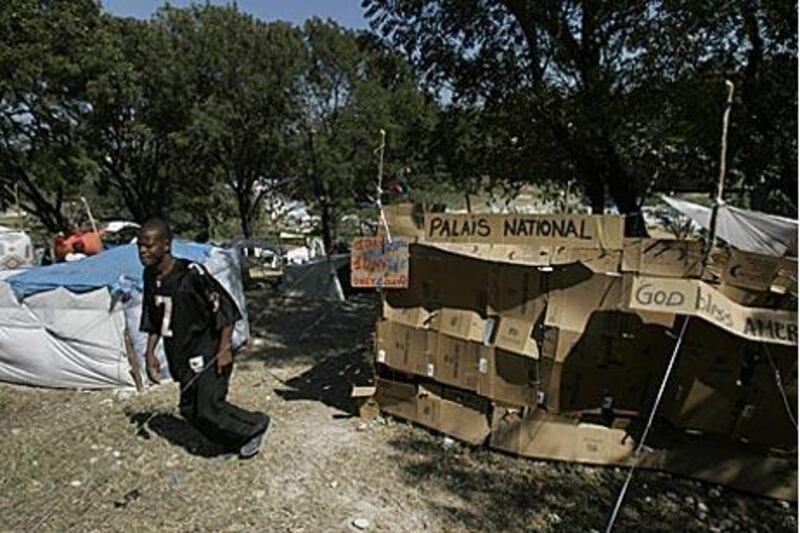Haiti's government has ended the search and rescue phase of the earthquake relief effort after at least 132 people were pulled out alive from under the rubble, the United Nations said today. "The Government has declared the search and rescue phase over," the UN's Organisation for the Coordination of Humanitarian Affairs (OCHA) said in its latest situation report on the relief effort. "There were 132 live rescued by international search and rescue teams," it added.
An 84-year-old woman and 22-year-old man were pulled out of the rubble in Haiti's capital, Port-au-Prince, yesterday, about ten days after the magnitude 7.0 quake. The man, Emmannuel Buso, was so ghostly pale that rescuers said his mother thought he was a corpse. However, doctors found him in relatively good shape despite his ordeal and he is expected to make a full recovery. Buso said from his bed in an Israeli Defense Force's field hospital near Haiti's main airport that he survived by drinking his own urine and spent most of his time under the debris in a listless daze, at times dreaming of his mother and thinking that he had in fact died. "I am here today because God wants it," Buso said.
Maj Amir Ben David, the head of the Israeli search-and-rescue team, said he has never seen anyone survive as long as Buso under such circumstances. The United Nations said the Haitian government declared the rescue effort over at 4pm local time (3am UAE) yesterday. Up to 67 search and rescue teams with 1,918 staff and 160 dogs combed the ruins of Port-au-Prince and towns and villages in south Haiti in the search for signs or life under collapsed homes and buildings. Aid workers have already said that a record number of people for such a disaster were pulled out. As deliveries of food, water, shelter and medical care to hundreds of thousands of people scaled up in Port-au-Prince and the worst affected towns of Jacmel and Leogane, the focus of the relief effort was shifting to the homeless. A huge wave of displacement was underway, partly with official blessing, as tens of thousands of people moved out to parts of the country that were not affected by the earthquake, the worst to hit the Americas in recent history.
"The number of people leaving Port-au-Prince is increasing daily," the UN said, as more than 130,000 people took advantage of the government's offer of free transport to other cities. "The total number of people leaving Port-au-Prince by private means remains undetermined," it added. The UN's Food and Agriculture Organisation (FAO) estimated that the number of people fleeing to impoverished rural areas could reach "as high as one million," adding to the strain on local resources, OCHA said.
Aid agencies already stationed around the country prior to the quake reported people arriving in the central area of St Marc, Anse-a-Galets, and Gonave Island in the west, many of them with injuries. * AFP






